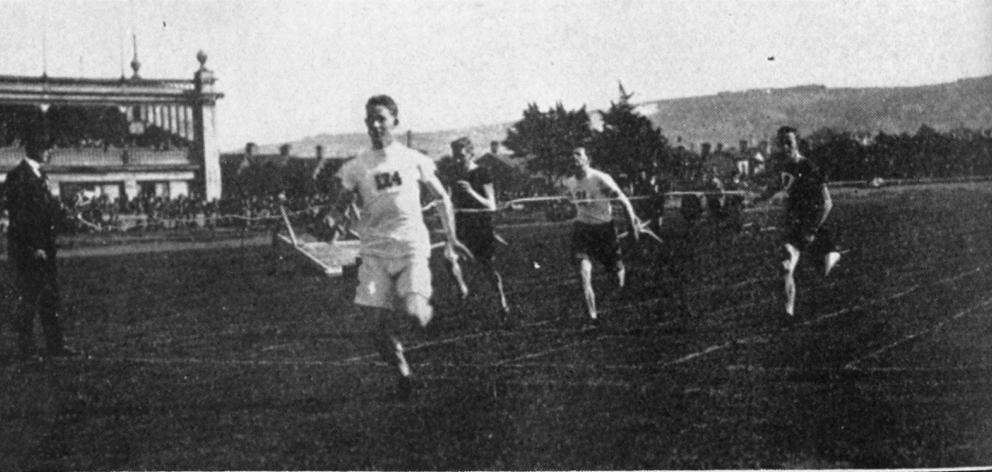
During that time Mr Cox has also occupied the position of a casual reporter on the staff of the Otago Daily Times, and his figure has been a familiar one at many meetings and public gatherings. Now well over 80 years of age, Mr Cox, accompanied by his wife, is about to return to the old country, whither the good wishes of many friends will accompany him to a happy home in Devonshire. Mr Cox spent some years in Australia trying his luck on the goldfields, before embarking on a career in journalism. He came to New Zealand in 1902, settled in Wellington for a couple of years, then went to take charge of the Winton Record for Mr Frank Hyde. He did not remain long there, however, but came to Dunedin where he has remained ever since. His mental powers have never failed and he is today remarkably alert. After the formation of the Dunedin Journalists’ Union he was appointed secretary, and has most ably filled that position and given his hearty cooperation to everything tending to the advancement of the profession. Mr J.W. Gow, president of the Dunedin Journalists’ Union, presented Mr Cox with a silver-mounted and inscribed walking stick and with a well-filled envelope from the management and staff of both papers.
Ambulance response times
The value of motor ambulance transport was well instanced yesterday in the case of the elderly couple in South Dunedin who were found in an unconscious condition as the result of asphyxiation by gas. As soon as the doctor arrived he dispatched a man to telephone for the ambulance, and it was on its way to the hospital with the patients in less than 20 minutes. Under the old horse ambulance system as much as 2 hours has been known to elapse before the removal of the patients.
Scheme for children’s emigration
The new scheme of the Salvation Army for settling children in Australia and New Zealand provides mainly for children between the ages of 5 and 12 years, although it is intended to transport a number of youths from 15 to 17 years of age. On the same morning on which the notice of the scheme appeared, 15 boys were waiting on the doorstep when the Salvation Army’s emigration office opened, all eager to start life in the new lands. The intention is to send out
1000 boys and girls from 5 to 12 years to the farm school near Cambridge in the Auckland district. While orphans of men who have fallen in the war will have preference, others are not debarred from the benefits of the scheme.
— ODT, 11.10.1920.












